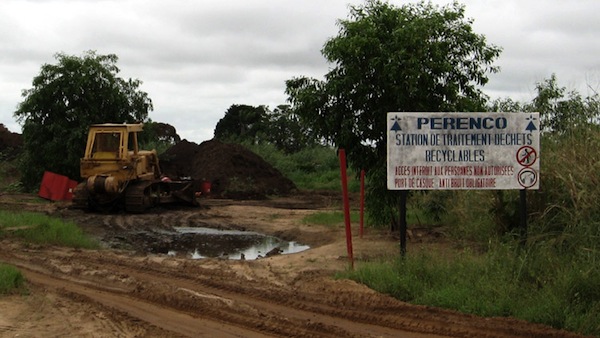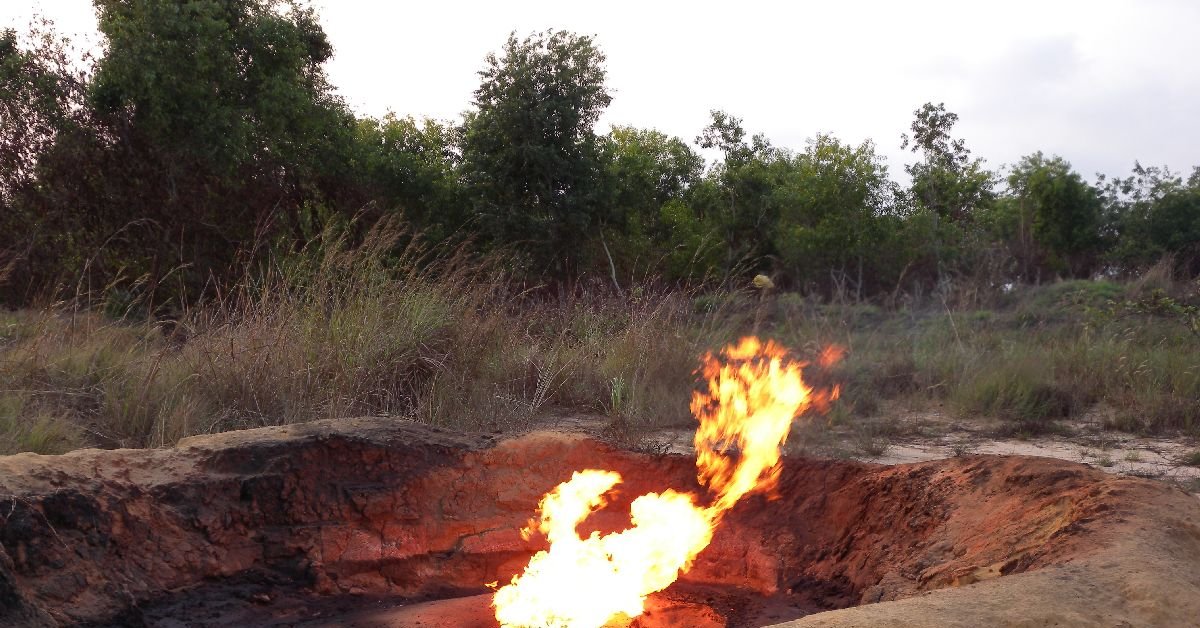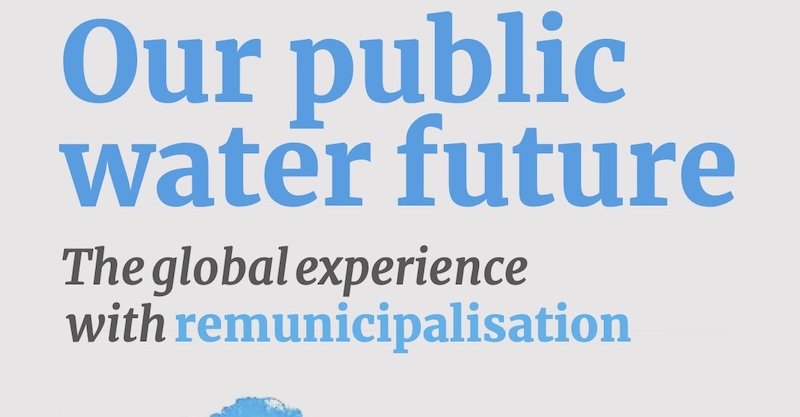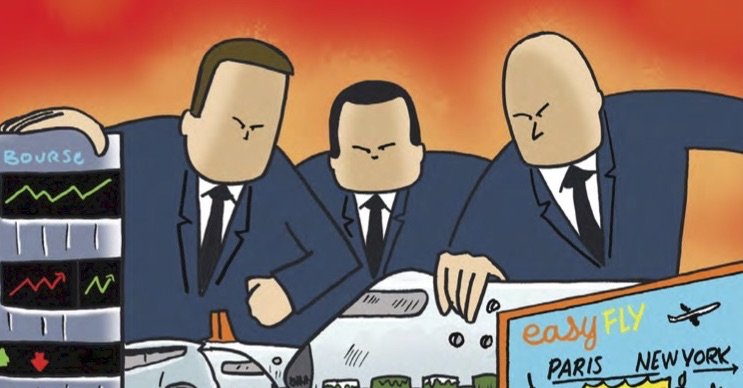The narrow coastal strip at the mouth of the Congo River in the Democratic Republic of Congo (DRC) is an area of oil extraction similar to those off the coasts of neighbouring Angola, Congo or Gabon, but on a smaller scale. A dubious privilege, perhaps? In the DRC and neighbouring countries, oil exploitation does not appear to have brought any positive contribution in terms of development. In fact, the opposite may be true: according to a recent report by a group of French and Congolese non-governmental organizations (NGOs), the extraction activities have a significant environmental and social cost for local populations. In Muanda, the coastal town where the petroleum deposits are located, the exploitation of oil is synonymous not with wealth but, say NGOs, with human rights violations.
This is all the more alarming since the DRC now seems to have become a prime hunting ground for international oil companies. Whilst today oil extraction still remains confined to Bas-Congo (a province in western DRC), prospecting operations are underway in different areas of the country, particularly around Lake Albert on the border with Uganda - a region characterized by both its rich biodiversity and by the violence that has reigned there for years. The entire history of the DRC has been marked by the bloody exploitation of its natural resources - from rubber to "conflict minerals" - by international business and foreign powers. Today, the DRC is ranked 186th in the UN Human Development Index, only ceding last place to Niger, home of Areva’s uranium mines. The question at the root of the issue is of the capacity of the DRC (and the international companies’ home countries) to develop the necessary legal and policy instruments to avoid history repeating itself, this time with oil.
The poorest oil city in the world
Developed by CCFD-Terre solidaire along with its Congolese partners - the Episcopal Commission for Natural Resources (French: Commission épiscopale pour les ressources naturelles, or CERN) and Action for Rights, Environment and Life (French: Actions pour les Droits, l’Environnement et la Vie, or ADEV) - the report ‘Oil in Muanda: Cheap Justice’ (‘Pétrole à Muanda: la justice au rabais’) describes how local populations suffer from the exploitation of oil without receiving much of the alleged benefits. On the one hand, the operations of Perenco cause pollution, environmental degradation and social upheavals that affect the fundamental rights of these populations; on the other, the supposed financial boon from oil extraction contributes nothing to bringing the people of Muanda out of poverty. Malnutrition and the absence of infrastructure or even the most basic services (water, electricity, waste) remain the rule. The official unemployment rate is at 95%.
It’s now been 30 years since Muanda’s (or Moanda) onshore and offshore petroleum reserves were first exploited. Permits previously held by Chevron were sold to Perenco in 2000. The precise number of onshore wells drilled in the area of over 400 square kilometres is not known: Perenco refuses to provide the information and, whilst a researcher estimated the figure to be 235 in 2012, residents estimate there are around 800. In any case, these wells are omnipresent in the Muanda region, sometimes even right beside residents’ huts [1].
As is often the case in oil extraction areas, leakages of crude oil, gas flaring and toxic waste are an every day feature of life for local people. The authors of the report have collected ample evidence confirming the reality and extent of these pollution problems. Although residents have complained for years of the severe degradation of many natural habitats (freshwater, marine, soils, air quality) as a result of the drilling, and although these accusations have been being repeatedly confirmed by experts or local officials, neither Perenco nor the authorities have ever officially recognised anything but isolated incidents. The company refuses to give any official information on pollution incidents, and the administration doesn’t have the means to conduct its own environmental and health monitoring. Perenco often even tries to return responsibility for the oil leaks on vandalism [2].
This environmental degradation is made all the more serious by the fact that the people of Muanda are extremely dependent on local natural resources for their income and survival. The area is also home to the Mangroves National Park, a marine park at the mouth of the river created in 1992. An area of unique biodiversity, the park is internationally recognised under the Ramsar Convention on Wetlands. It is also vulnerable to oil pollution, but, yet again, no form of environmental monitoring is provided by either Perenco or local authorities.
Unseen benefits
Between 2006 and 2010, fishing and agriculture represented more than 50% of Bas-Congo province’s GDP, compared to only 25% for mining and oil. Perenco claims that it contributes, directly or indirectly, to the employment of 1000 people. But only 30% of these originate from Muanda itself (14% for executives) [3]. Most local employees of Perenco perform only menial duties on behalf of subcontractors, with poor wages and dubious safety conditions. Overall, this suggests that the progressive degradation of natural resources due to oil pollution leads to a net loss for the region, even in pure economic terms. And that’s without mentioning the impact of oil operations on the well-being and dignity of these populations. Indeed, for the authors of the report, these operations are a direct cause of human rights abuse – violations of economic and social rights (to health, food, a clean environment, etc.), but also of political rights.
Villagers and NGOs who try to denounce the negative impacts of Perenco’s operations have a great deal of trouble making their voices heard, when they are not simply physically abused. Soldiers from the nearby Kitona military base have repeatedly stepped in to suppress demonstrations against Perenco, and some community leaders have been imprisoned in the base and beaten up. In 2009, people from the village of Kongo who had come to protest at the Mbiale oil storage facility against oil pollution and the wasting of their palm groves were sent directly to prison by local authorities. They were told they were going to meet with representatives of Perenco… They were released only after 24 days, although no charges were ever made. Following these incidents, authorities announced they were establishing a ‘committee’ to facilitate dialogue with local people, but critical voices were quickly excluded.
But doesn’t the exploitation of oil in Muanda at least have substantial tax benefits for DRC? In this area too there is no transparency. Several conflicting figures are mentioned in official documents, and it seems impossible to make sense of these differences, let alone assess the fairness of Perenco’s tax contribution. The rules for reporting production by oil firms are in any case extremely lax in the DRC, and local authorities have no means of verification. It seems, however, that oil royalties paid by Perenco already represent a significant portion of the DRC’s national budget. This is perhaps explains by the fact that the management of oil business is highly centralized, and fully controlled by the Congolese presidency. The content of the contracts between Perenco and the Congolese state is kept secret, despite a 2011 decree stipulating that all mining and petroleum contracts must be made public. In any case, it does not seem that these oil tax revenues, as they exist, benefit the local people of Muanda.
Of course, Perenco doesn’t miss any opportunity to pose as a ‘responsible business’ and to showcase various social programs put in place in Muanda: renovations of schools and roads, health work, support to local groups and local business… But NGOs point out that even when real, these one-off payments are far from sufficient to offset the problems caused by oil exploitation and the failings of the Congolese state: ‘The reality and scope of actions is very low or even zero: repainted schools without teachers, clinics without drugs, a fountain installed after a river was polluted, a cultural centre inaccessible to the majority of Congolese,’ says the report.
Perenco claims, for example to have installed street lighting in a village, but campaigners who went to the scene found only a ‘rudimentary board in a container and a few posts (old metal tubes),’ the inhabitants having had to finish the installation themselves. Similarly, despite the financial support provided by Perenco to local NGOs charged with ensuring the cleanliness of the city, household waste has continued to accumulate very visibly in the streets. The company has set up a ‘representative’ committee to manage and oversee the allocation of funds and the management of social projects, but residents complain of its inconsistent and secretive behaviour. Perenco seems to have chosen to prioritise funding for projects with direct benefits for the company, such as the renovation of the airport and of the road that leads to it. Meanwhile, Muanda’s main avenue and the road to Boma remain in an appalling state.

A Franco-British “oil junior” rolling in controversy
Founded in 1975, Perenco specialises in the recovery of so-called ‘mature’ fields, in which remaining reserves are estimated to be less than 10% of initial reserves. But the firm has gradually expanded its scope. In recent years it has enjoyed sustained growth, reaching revenues of $ 5.9 billion and a production of around 375 000 barrels per day in 2012 [4]. According to figures released by Perenco, the DRC represents only around 7% of its global production, with an average of 28 000 barrels per day in 2012, behind neighbours Gabon and Cameroon (as well as Vietnam and the United Kingdom).
An unlisted company owned by the Perrodo family (the 16th largest French fortune in 2013), Perenco is free from any obligation to provide information or transparency on its internal organisation or its finances. Moreover, its holding companies are registered in the Bahamas (even though the “real” headquarters are in France and the United Kingdom). For the publication of their report, CCFD-Terre Solidaire asked the Dutch consultancy Profundo to analyse the internal structure of the Perenco group and the different companies that comprise it through available direct and indirect sources.
Profundo’s analysis shows that Perenco Rep, the subsidiary of Perenco which officially holds the rights to the Muanda concession, appears nowhere in the documents published by the company itself. It does not appear in the organisational chart reconstructed by Profundo from diverse sources. Nor indeed do any of Perenco’s other subsidiaries officially in charge of the exploitation of on and off-shore wells (in which the Congolese state holds minority shares). However, a company named Perenco RDC SPRL does appear in this chart. It is unknown in Muanda but located at the same address as Perenco Rep. This structural opacity prevents all traceability of financial and tax information and allows Perenco to avoid a priori any legal liability for what might be happening in Muanda.
Perenco’s global expansion has been marred by numerous controversies. In the Peruvian Amazon, where it has been operating since 2008, Perenco wants to extract oil in a pristine rainforest near the border with Ecuador and build a 200 km pipeline for its transport to the Pacific Ocean. Peruvian civil society groups accuse the oil company of denying the environmental risks of its projects and harming local indigenous tribes. Perenco’s response, there as well, is to show off various social programs. It also denies the existence of indigenous tribes living in voluntary isolation in the perimeter of its concession… all whilst preparing a guide for its staff who might encounter them (see A new threat to the Amazon: the French oil industry). In Guatemala, Perenco has for several years been extracting oil in Laguna del Tigre, Central America’s largest wetland (also listed under the Ramsar Convention), with the support of the army and the state and at the expense of local indigenous populations who are progressively dispossessed of their lands, livelihoods and culture (see Perenco au Guatemala : exploiter le pétrole coûte que coûte ? – in French). In both cases, we find similar set-ups to Muanda.
In Tunisia, Perenco operates gas fields, and used hydraulic fracturing techniques in 2010 in especially dubious conditions. The use of this technology wasn’t then officially authorised in Tunisia, and conflicting information circulated on the results of these tests. After having initially announced that hydraulic fracturing had led to a doubling of the yield of the deposit, Perenco now says that the tests were not conclusive and that they have renounced hydraulic fracturing [5].
Institutionalised Irresponsibility
Are the problems caused by oil exploitation in Muanda simply the inevitable price of development? According to the authors of the report, they are instead one of the most striking examples of the sort of ‘bad development’ inevitably triggered by the dominant model for international investment. ‘The oil concession owned by Perenco in Bas-Congo has all the ingredients of a textbook case: a veil of secrecy, impunity for the companies concerned, environmental problems, negligible contribution to development, corruption and heavy repression of local communities in their legitimate attempts to protest,’ an expert observed several years ago.
This report on the exploitation of Muanda’s oil is part of CCFD-Terre solidaire’s campaign ‘Offside investments’ (‘Investissements hors jeu’). This campaign aims to expose the harmful effects – for the environment, human rights and social justice – of international investments in the global South. Too often, these ‘foreign direct investments,’ or FDI, presented as a panacea in terms of development by international financial institutions and Western aid agencies, are nothing but a way for multinationals like Perenco to expand into new markets, without any real concern for local people. CCFD-Terre solidaire believes that new rules are necessary to ensure that private investments effectively contribute to the development of the poorest nations on earth.
Poor governance, inadequate national and international legal systems, and (often) the cynicism of international companies combine to provide multinational corporations with almost total impunity over their social and environmental impacts, as well as easily circumvented tax obligations. In the case of Perenco, the company showcases various good-deed projects in order to pose as a ‘responsible’ company. At the same time, all evidence suggests that it continues to exploit the slightest loopholes in legislative and policy framework to maximise its profits and reduce its costs, without feeling bound by any ethical consideration save the legal rules that local political authorities are able to enforce. Despite all its alleged good deeds, Perenco hasn’t carried out (or at least made public) any study on its social and environmental impacts in Muanda, doesn’t subscribe to any certification or ‘best practices’ program (of which there exist so many in the extractive sector), and has introduced no risk prevention plan or compensation scheme. Taking advantage of Congolese law, as well as that of the Bahamas where it is formally headquartered, it doesn’t release much public financial, social or environmental information on its activities either.
Of course, highlighting Perenco’s misdeeds should not lead us to clear the Congolese government of any responsibility for its inability to protect its population, establish appropriate regulations, and enforce them. But, as pointed out by the report, making multinational companies accountable should involve both the destination countries for their investments – here the DRC – as well as those where these businesses’ headquarters are located. The countries of origin of international firms – in this case France and the UK – must also impose obligations on ‘national’ companies and offer victims a way to claim compensation. It is clear, however, that progress in this area remains extremely modest in France. The new extra-financial reporting requirements passed into law in 2010 – but still awaiting their implementing decree – were gradually emptied of any substance. On other issues, such as country-by-country financial reporting and the legal responsibility of parent companies, the French government has sidestepped the issues by off-loading them onto the European Union – which earned it the wrath of civil society groups. The only glimmer of hope is a proposed law on the responsibility of transnational corporations recently filed by some French MPs.
A law to regulate oil exploration and exploitation in the DRC
If oil exploitation today remains confined to Bas-Congo, reserves are being prospected in other regions of the DRC, particularly in the central basin and Lake Albert (on the border with Uganda). Oil concessions have been granted to a few ‘pioneer’ firms, like Soco, Heritage Oil and Tullow Oil, and a plethora of small unknown companies characterised more by their political connections than by their past expertise in the oil industry [6]. Only more recently have the larger oil multinationals – particularly French company Total and the China National Offshore Oil Corporation (CNOOC) – entered the fray. Perenco itself wants to expand its operations into other districts of Bas-Congo, including into the agricultural area of Moyambe, traditional breadbasket of the region. In total, the estimated oil reserves in DRC now reach 3 or 4 billion barrels – well beyond Perenco’s current output.
The case that has most hit international headlines is that of projected oil exploitation in Virunga National Park, Africa’s first natural park (established in 1925) and one of the last refuge for mountain gorillas, a critically endangered species. The boundaries of the park largely coincide with the areas under exploration around Lake Albert and Lake Edward. Armed groups are still active throughout the region. To date, the only company that openly plans to search for oil inside the Virunga National Park is British company Soco. It claims to have the blessing of the Congolese state, and to have put all the necessary safeguards in place to ensure that its operations will not have a negative environmental impact. This was not enough to convince WWF. The environmental NGO has filed a complaint with the UK’s ‘National Contact Point’ to bring attention to this violation of the OCED guidelines for multinational enterprises. Following the mobilisation of Congolese and international civil society, Total has promised it will not seek to extract oil in the portions of its concessions within the national park’s boundaries.
Looking past the case of Virunga national park, many observers fear that the lure of oil wealth will lead to a resurgence of violence in the region. The Eastern provinces of the DRC have experienced extreme forms of violence linked to the civil war and the extraction of local mineral resources (tungsten, tin, gold and tantalum). According to a 2012 report on this issue by the International Crisis Group, ‘inadequate legislation, the absence of state regulation, a lack of financial transparency and the “presidentialisation” of this strategic sector risk casting a curse on the oil industry – much like the mining sector – and becoming a new centre of tension between local and foreign interests. Similarly, without an institutionalised dialogue with civil society and genuine decentralisation, provinces and communities where fossil fuels reserves are located may not benefit from the revenues, which could fuel resentment and further weaken national cohesion.’ The risks are even stronger since most of the potential oil reserves are cross-border (with Angola to the West; Uganda, Tanzania and Burundi to the East). The fact that some oil companies are present on both sides of the border (Total, for example, holds concessions on both sides of Lake Albert in Uganda and the DRC, as well as in Tanzania on the shores of Lake Tanganyika) doesn’t seem to relieve tensions [7].
Concerned by the corruption and human rights abuses that always seem to have accompanied the exploitation of Congolese soil and subsoil’s riches, civil society – united under the Natural Resources Network coalition (French: Réseau ressources naturelles, RRN) – campaigns for the adoption of a framework law on fossil fuels that would bring more transparency and safeguards in terms of citizen participation, in line with international norms. Indeed, the DRC has not yet established a real legal code for oil operations (in contrast to the forestry and mining sectors, where such codes do exist), and the sector is still governed by out-dated and incomplete sets of rules, which fail to deal with social and environmental issues. The DRC Presidency monopolises decision-making power, and secrecy vies with inconsistency. ‘Where some see a legislative delay or an unfortunate oversight, Congolese civil society organisations see the will to allow a state of emergency to continue, maintained for the exclusive benefit of a few.’ A new bill to regulate the sector was introduced in March 2013, but serious shortcomings remain in terms of transparency, the public release of impact studies or compensation mechanisms.
Since 2005, the DRC has committed to the voluntary process of the Extractive Industries Transparency Initiative (EITI) – a modest but relatively consensual approach supported by major international public and private players. But the progress is very slow: the country wasn’t accepted as an EITI candidate until 2005 and, due to repeated late publication of the obligatory annual financial reports, the date of its full accession to EITI has been continuously delayed [8].
In any case, participation in the EITI can never be a substitute for the adoption of a comprehensive framework law on fossil fuels capable of ensuring the full transparency of which Congolese civil society dreams. There again, recent standards adopted in Western countries, despite their shortcomings, could play a positive role. This includes recent initiatives of the European Union dealing with accountability and transparency, which force large companies to declare payments to foreign governements and which should be applicable to Perenco. But financial transparency is only a first step. The ultimate goal is ensuring that decisions about the exploitation of Congo’s oil and its social and environmental impact will be taken in a democratic and transparent manner, weighing all the costs and benefits, and that these benefits will actually be distributed fairly to the population of the DRC.
Olivier Petitjean
—
Photos : © PNUE ; © CCFD-Terre Solidaire




